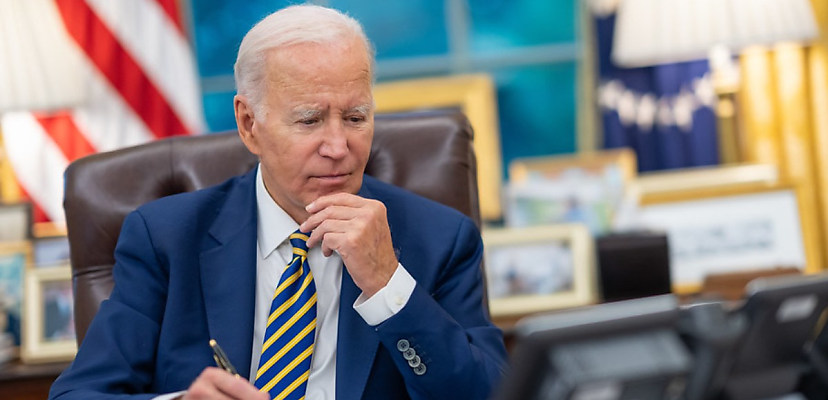Share this article on:
Powered by MOMENTUMMEDIA
Breaking news and updates daily.
The US is in the process of drafting a new executive order that would restrict foreign adversaries’ access to sensitive data belonging to Americans and those connected to the government, according to reports.

While it is obviously already a crime to illegally access the data of US citizens or otherwise through data breaches or cyber crime, the new draft focuses heavily on the legal ways in which foreign adversaries gain access to highly sensitive data – such as personal identifiable information (PII), genetic information, location data and more of US citizens.
These methods include through employment and investment agreements, third-party vendor agreements, data brokers and more.
The draft executive order, which the Biden administration plans on implementing soon, will allow the US Attorney General and the Department of Homeland Security to issue restrictions on legal data transactions if the transaction could undermine or threaten national security, according to a trio of unnamed sources close to the matter speaking with Bloomberg.
The theft of data belonging to US citizens is a major concern for the White House, as it could allow “countries of concern” to engage in espionage, blackmail and cyber attacks, which could threaten national security.
Genetic data is also a huge concern, with the Office of the Director of National Intelligence (ODNI) warning that China has collected massive amounts of genetic and personal data from health databases, both illegally and legally.
“Losing your DNA is not like losing a credit card,” it said. “You can order a new credit card, but you cannot replace your DNA,” it wrote back in 2021.
“The loss of your DNA not only affects you, but your relatives and, potentially, generations to come.”
The ODNI has added that there are a number of Chinese organisations that perform genomic operations and genetic testing, which, in turn, would require them to collect data.
As per the new draft, the Biden administration aims to prevent that data from being exploited, while not restricting scientific research.
The Chinese embassy in Washington responded to the draft, saying the US should act based on facts rather than slam other nations.
“Each country has the responsibility and right to protect the security of important data and personal information related to its national security, public security, economic security and social stability,” said embassy spokesperson Liu Pengyu, speaking with BleepingComputer.
“We hope that the US can view data security issues in a comprehensive and objective manner based on facts, instead of making groundless accusations, attacking and discrediting other countries.”
Additionally, the draft raises concerns that the artificial intelligence boom has only made threats worse as data can be more easily scraped using the technology.
This would allow foreign adversaries to create profiles of US citizens and those with connections to government agencies, which could, in turn, be used to source information that threatens the nation’s national security.
“Countries of concern can use artificial intelligence to target US persons for espionage or blackmail by, for example, recognising patterns across multiple unrelated datasets to identify potential individuals whose links to the federal government would be otherwise obscured in a single dataset,” said the draft.

Be the first to hear the latest developments in the cyber industry.